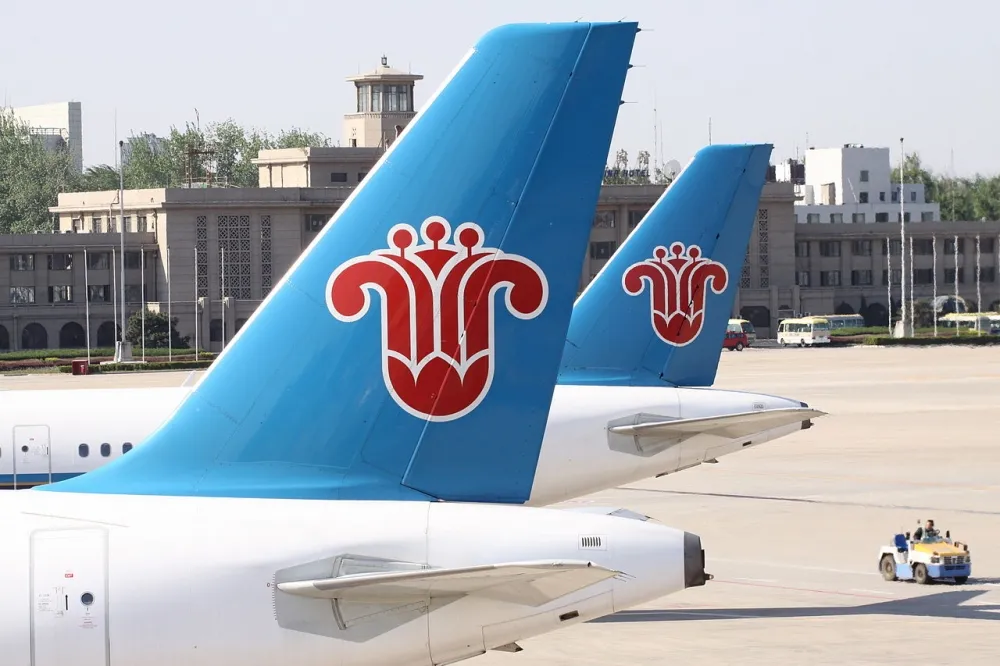
China seeks airline whistleblowers to highlight safety breaches
May 20, 2022

China is actively encouraging airline employees to report safety violations to enhance aviation safety standards. The initiative aims to identify and address potential breaches in protocols that could jeopardize passenger safety. Authorities are promoting a culture of transparency by offering protections and incentives for whistleblowers, emphasizing the importance of accountability within the industry. This move comes in response to growing concerns about safety practices amid an increase in air travel. By empowering insiders to speak out, China hopes to foster a safer flying environment and improve overall operational integrity within its aviation sector.
The aviation industry in China is undergoing a significant transformation as authorities actively seek airline whistleblowers to report safety breaches. This initiative aims to improve safety standards and maintain public confidence in air travel. With the recent increase in air traffic and the growing number of airlines operating in the country, ensuring the highest safety standards has never been more critical. In this article, we will explore the implications of this initiative and how it can impact the aviation sector.
Understanding the Whistleblower Initiative
The Chinese government has recognized the vital role that whistleblowers can play in enhancing aviation safety. By providing a platform for employees to report safety violations without fear of retaliation, authorities aim to foster a culture of transparency within the industry. This initiative allows airline employees to come forward and disclose safety concerns—ranging from maintenance issues to operational lapses—thereby highlighting serious risks that could endanger passengers and crew.
The Importance of Safety in the Airline Industry
Safety is paramount in the airline industry. With millions of passengers flying daily, even a minor oversight can lead to disastrous consequences. The Chinese government is committed to maintaining safety standards that meet international benchmarks. By encouraging whistleblowers, the authorities are taking proactive steps to identify and rectify potential safety breaches before they escalate.
The Role of Whistleblowers
Whistleblowers serve as the eyes and ears of the aviation industry. Their firsthand experiences provide invaluable insights into the operational practices of airlines. By reporting unsafe conditions or practices, they can help authorities implement necessary changes to protect passengers. This initiative not only empowers employees but also ensures accountability within the airline sector.
Potential Challenges for Whistleblowers
Despite the benefits of this initiative, potential whistleblowers may face challenges that deter them from coming forward. Concerns about job security and retaliation are significant barriers. To address these issues, the government must establish robust protections for whistleblowers, ensuring that their identities remain confidential and that they are safeguarded against any form of discrimination or harassment.
Chart: Key Safety Breaches Reported by Whistleblowers
| Type of Safety Breach | Percentage of Reports |
|---|---|
| Maintenance Issues | 45% |
| Operational Lapses | 30% |
| Training Deficiencies | 15% |
| Regulatory Non-compliance | 10% |
This chart illustrates the types of safety breaches that have been reported by whistleblowers in the airline industry. Maintenance issues account for the largest percentage, highlighting the need for rigorous checks and balances in this critical area.
How the Initiative Enhances Public Confidence
Public confidence in air travel is essential for the growth of the aviation industry. By actively seeking input from whistleblowers, the Chinese government demonstrates its commitment to safety and transparency. This initiative reassures the traveling public that their safety is a priority and that any potential risks are being addressed promptly. As the industry evolves, maintaining this trust is crucial for attracting both domestic and international travelers.
Future Implications for the Aviation Sector
The whistleblower initiative is expected to have far-reaching implications for the aviation sector in China. As more employees feel empowered to report safety concerns, airlines will likely face increased scrutiny regarding their safety practices. This could lead to significant changes in operational protocols, training programs, and maintenance schedules. Ultimately, the goal is to create a safer flying environment for everyone.
Conclusion: A Step Toward Safer Skies
China's initiative to seek airline whistleblowers marks a significant step toward enhancing aviation safety. By encouraging employees to report safety breaches and ensuring their protection, the government is fostering a culture of accountability and transparency within the industry. As this initiative unfolds, it will be crucial for airlines to adapt and address the concerns raised by whistleblowers to ensure the safety and well-being of all passengers. The future of air travel in China will depend on the commitment to safety and the willingness to act on the information provided by these courageous individuals.
Related Articles

Explore Thailand: The Best Islands to Visit for Paradise, Adventure, and Relaxation

The Ultimate Guide to the Best Islands in Thailand for Your Next Getaway

Do babies need passports? How to get a passport for a newborn

How to get a U.S. passport fast: here’s how to expedite the process

What is Mobile Passport Control: 5 reasons why you should use it

SENTRI vs. Global Entry: A detailed guide

Do you need a passport to go to the Bahamas? Let’s find out

Do you need a passport to go to Mexico? A detailed guide

Do you need a passport to go to Canada? We got the answer

Do You Need a Passport for a Cruise: An Essential Travel Guide

Booster Seat Requirements: All the Rules to Follow in Your Rental Car

What Are the World’s Most Powerful Passports, and How Does Yours Rank?

How to Take a Passport Photo at Home: A Helpful Guide

You've got to have heart! Southwest's new livery

Your opinion: Should water be free on low cost carriers?

Young women bolder than guys as solo travellers
